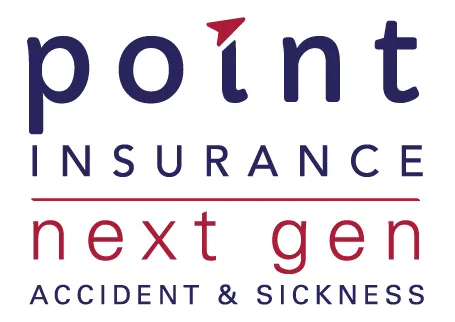Home > Business Insurance > Professional Indemnity Insurance Cost
Professional Indemnity Insurance Cost
Compare the cost of professional indemnity insurance from some of Australia’s leading insurers here with Savvy.
Author
Savvy Editorial TeamFact checked








We’ve partnered with BizCover to bring you a range of business insurance policies to help you compare them side by side.
Professional indemnity insurance can protect you and your business from claims of loss and damage as a result of bad advice or service. If you need this type of cover, it’s worth finding a policy at the right cost for your business.
You can compare the cost of professional indemnity here with Savvy. Get a range of quotes here from some of Australia’s leading insurers. With just a few clicks, you can compare policies online to help you find the best one for your needs. Get peace of mind knowing your business is covered by starting the process with us today.
How much does professional indemnity insurance cost?
There is no one standard cost for professional indemnity (PI) insurance in Australia. Just as businesses range in size and type, so do the business insurance policies that keep them safe.
The key factors which will play a part in determining the cost of your professional indemnity insurance are:
- your industry and occupation: certain positions and industries will pose a greater risk than others
- your claims history: companies which have made extensive claims previously will likely pay more for their insurance
- the size and turnover of your company: larger companies will have to pay more for coverage in most cases
- how many employees there are: more employees operating within a business brings a greater risk of a claim
- the amount of coverage you need: higher maximum payouts of $20 million will cost more than those of $5 million or less
In particular, the occupation and industry you’re in will be a key factor. The riskier the occupation you’re in, the higher your premiums are likely to be. The risk that a particular industry poses to an underwriter is based on years of research by insurance companies, looking at the number of claims submitted per industry. Risky occupations include real estate, architects, surveyors and consultants. Lower-risk occupations include accountancy, bookkeeping, tax agents, migration agents and allied health professionals.
If you want a better idea of how much professional indemnity insurance will cost your business, you can compare a range of quotes with Savvy today. By answering just a few questions about your business and the nature of the work you undertake, you can start comparing today to make sure you’re getting the very best value for your insurance dollar.
What will professional indemnity insurance cover me for?
This insurance will cover the cost of defending a claim that a third party suffered a loss or injury as a result of the advice or service received. It will also cover you for:
- claim investigation costs
- legal costs to defend your case
- compensation costs to the claimant
- payment of the claimant’s legal costs
- payment of court-awarded damages
- the cost of defending disciplinary action against yourself
- the cost of defending your reputation
A professional liability claim against you can arise from a variety of circumstances, including:
- breach of care or confidentiality
- defamation of someone
- miscalculations or mistakes
- oversights or omissions
- failure to deliver an expected service
- failure to meet an expected deadline
As you can see, the reasons for launching a claim against a professional cover a wide range of circumstances, which is why it’s so important to be covered for as many eventualities as possible. However, professional indemnity won't cover you for:
- intentional or malicious conduct
- dishonest or illegal conduct
- claims arising from events before the insurance policy was purchased*
- contractual liabilities with no-fault clauses
*Some professional indemnity insurance policies do come with a retroactive date, which is an agreed length of time before the policy is taken out that cover will be provided for. Some policies even have unlimited retroactive dates, whereas others have no such date at all, so you will only be covered for events which happen from the date the cover is operable.
Who needs professional indemnity insurance?
Professional indemnity insurance is a form of business insurance that is vital for any business, contractor or individual who provides advice, opinion or a service to the public. It isn’t just for doctors, architects, lawyers and accountants, but for any individual who provides a service to the public. This includes:
- nurses, physiotherapists and all allied health professionals
- engineers, consultants and designers
- management and employment consultants
- IT contractors, programmers and systems engineers
- real estate agents, conveyancers and accountants
- photographers, filmmakers and marketers
For example, you may think that being a wedding photographer isn’t a risky occupation, but a couple who are unhappy with their costly wedding pictures could see your business facing a lawsuit.
The vital question to ask yourself is: ‘Am I providing advice, opinion or a service to the public?’ If the answer is yes, you most likely need professional liability insurance.
For some professions, this type of insurance is compulsory. This is the case for nurses, for example. However, it’s often provided for many nurses through their union. Before taking out PI insurance, check whether you’re already covered by your union or any professional association you may be a member of.
How much professional indemnity insurance do I need?
The Limit of Indemnity is the maximum limit that the insurance policy will pay out in the event a claim is made. Naturally, the higher the limit of professional indemnity offered, the more your policy will cost you. However, it’s crucial to avoid underinsuring yourself or your company, as personal injury claims can be substantial.
For example, a building surveyor may take out a policy that provides them with professional indemnity up to a value of $2 million. However, if someone was injured on their site and the court awards the victim $5 million, the surveyor would be substantially underinsured and liable to pay up to $3 million.
Professional indemnity can start at $500,000 and go up to tens of millions of dollars, depending on the size of the company, the number of people covered and the industry and occupation of the covered parties. The policy’s limit may either be inclusive of legal costs or exclusive of them. This is an area you should compare between policies before deciding if that offer is right for you.
If you aren’t sure how much professional indemnity insurance you require, it’s worth asking your professional body, association or union, as there are standard limits recommended for most professional circumstances.
Top tips for reducing the cost of your professional indemnity insurance
Conduct a compliance assessment
Retaining an independent assessor to report on standards compliance will impress insurers and could lead to a reduction in your insurance premium. This will assure the underwriters that you take compliance with professional standards seriously.
Have written standard operating procedures (SOPs)
Having strong standard operating procedures covering all aspects of service is another way of ensuring your insurance premiums are kept low. SOPs set the groundwork for professional and standardised service. They ensure that all employees know exactly how they’re required to operate and have guidelines for doing so.
Get legal advice on the wording of your contracts
Make sure the wording of your service contracts doesn’t leave you open to claims of unprofessional or improper conduct. Having a lawyer check your contracts before signing them can be a great way to mitigate risk and can make a favourable impression on your insurance underwriters, potentially reducing your costs.
Compare insurers with Savvy
It’s always sensible to get a range of business insurance quotes and compare policies to make sure you’re getting the most value for your premiums. Savvy can help you compare offers for professional indemnity insurance from some of Australia’s top insurers, so apply now for a range of no-obligation quotes at your fingertips.
The pros and cons of professional indemnity insurance
PROS
Offers peace of mind
Having professional indemnity insurance can help you sleep better at night knowing you're protected against a wide range of legal claims and can afford to defend yourself.
Can protect you against very expensive claims
Professional indemnity claims can run into millions of dollars. This is especially important for smaller businesses that don’t have the resources to defend or pay out a $5 million claim.
Enables you to defend your professional reputation
Professional indemnity insurance can also assist you with the cost of defending yourself against defamation, and potentially the cost of a public relations exercise to restore your company’s reputation. Claims such as these can be damaging to a professional reputation, so it's valuable to know that you'll be covered.
CONS
Cost
Professional indemnity insurance isn’t the cheapest form of insurance available in Australia but is one of the most important for all professionals. The cheapest policy isn’t always the best one, either.
No cover for events prior to policy
If a claim is made against you for an event which happened before you signed up for professional liability insurance and your policy doesn’t have a retroactive date, you won’t be covered. This applies even if the claim is made during your cover period.
Won't cover your mental health
Defending yourself against a negligence claim can be very stressful and can often lead to poor mental health. However, even if you win your case, you won't be able to claim for the stress and injury to your mental health caused by the false claim.
Types of business insurance
Covers legal costs and compensation claims if a third party is injured or their property is damaged due to your business activities.
Protects against claims of professional negligence or errors in your work, providing financial coverage for legal costs and damages.
Provides coverage if a product you supply, sell or manufacture causes injury or property damage, covering legal costs and compensation claims.
It is mandatory in Australia and can cover the wages of employees who are unable to work due to injury or illness incurred while on the job.
Protects your business property and assets from damage or loss due to events like fire, theft, or natural disasters.
A comprehensive policy combining public liability, property, and contents insurance, tailored for small businesses.
Financial protection if your business is unable to operate due to a covered event, covering lost income and ongoing expenses.
Covers loss or damage to your business equipment, stock, and contents due to events like theft, fire, or natural disasters.
Provides income protection in case of injury or illness, offering financial support during the recovery period.
Protects directors and officers from legal claims related to their management decisions and actions, covering legal costs and damages.
Covers your business assets, including equipment, machinery, and inventory, against loss or damage caused by specified events.
Provides coverage for liability, loss, or damage related to the operation of drones or unmanned aerial vehicles (UAVs).
Insurance that covers the cost of professional fees associated with responding to tax audits, including accountant fees and legal representation costs.
Reimburses fixed business expenses if you're unable to work due to illness or injury, ensuring continuity of essential financial commitments.
This cover protects against claims of property damage or bodily injury by a third party, covering legal costs and compensation claims.
A package of insurance suitable for small businesses that combines various different types of insurance to protect business owners against multiple risks.
Covers loss or damage to your business equipment and machinery including portable items due to events like theft, fire, or accidental damage.
Provides coverage for loss or damage resulting from theft or burglary at your business premises, safeguarding your assets and inventory.
Protects against financial losses and liabilities arising from cyber-related incidents, including data theft, cyber attacks and ransomware demands.
Covers the cost of repair or replacement of glass windows and doors and other glass fixtures and fittings due to accidental damage or breakage.
Enjoy the Savvy difference when you compare insurance with us
100% free comparison service
Find the best possible insurance coverage for your business quickly and easily here with Savvy's 100% free comparison service.
Compare trusted partners
With multiple trusted insurance partners across the country, you can enjoy high-quality online comparisons all in one place right here.
Skip the hassle and save time and money by comparing with Savvy to get instant online insurance quotes for convenient comparisons.
More of your questions about professional indemnity insurance
Yes – it isn’t the size of your business that is important, but the nature of the service or advice you offer to the public that could place you at risk. Therefore, even if you’re a sole trader offering advice to the public, you should consider professional indemnity insurance.
Professional indemnity offers you protection against claims that your advice or service caused injury or loss to a third party. Product liability protects you against claims that a product you manufactured or supplied caused harm or injury.
Yes – in most cases, you can claim the cost of your PI insurance back on your tax return as a legitimate cost of doing business. The same applies to all other types of business insurance.
It isn’t compulsory across the board, although for some occupations it’s a compulsory condition to get accreditation, licencing or practicing approval. Regulations are also different in each state and territory. For example, in Canberra, the rules about compulsory professional indemnity insurance will be different from those in NSW.
Yes – it makes good sense to do so. There’s a form of professional indemnity insurance known as ‘run-off’ cover, which covers professionals once they retire or sell their business. It is often recommended that retiring professionals have their cover for a period of at least five to seven years after they cease providing service. This is because potential problems could still arise from advice they gave many years prior, and there’s a possibility a customer could still make a claim even though the business has been sold.
Business insurance by industry
Helpful guides on business insurance
Disclaimer:
Savvy is partnered with BizCover Pty Ltd (ABN 68 127 707 975, AFSL 501769) to provide readers with a variety of business insurance policies to compare. Savvy earns a commission from BizCover each time a customer buys a business insurance policy via our website. We don’t arrange for products to be purchased from these brands directly, as all purchases are conducted via BizCover.
Savvy does not compare all business insurance policies or providers currently operating in the market. Any advice presented above or on other pages is general in nature and doesn’t consider your personal or business objectives, needs or finances. It’s always important to consider whether advice is suitable for you before purchasing an insurance policy.
For any further information on the variety of insurers compared by BizCover or how their business works, you can read their Financial Services Guide.
















